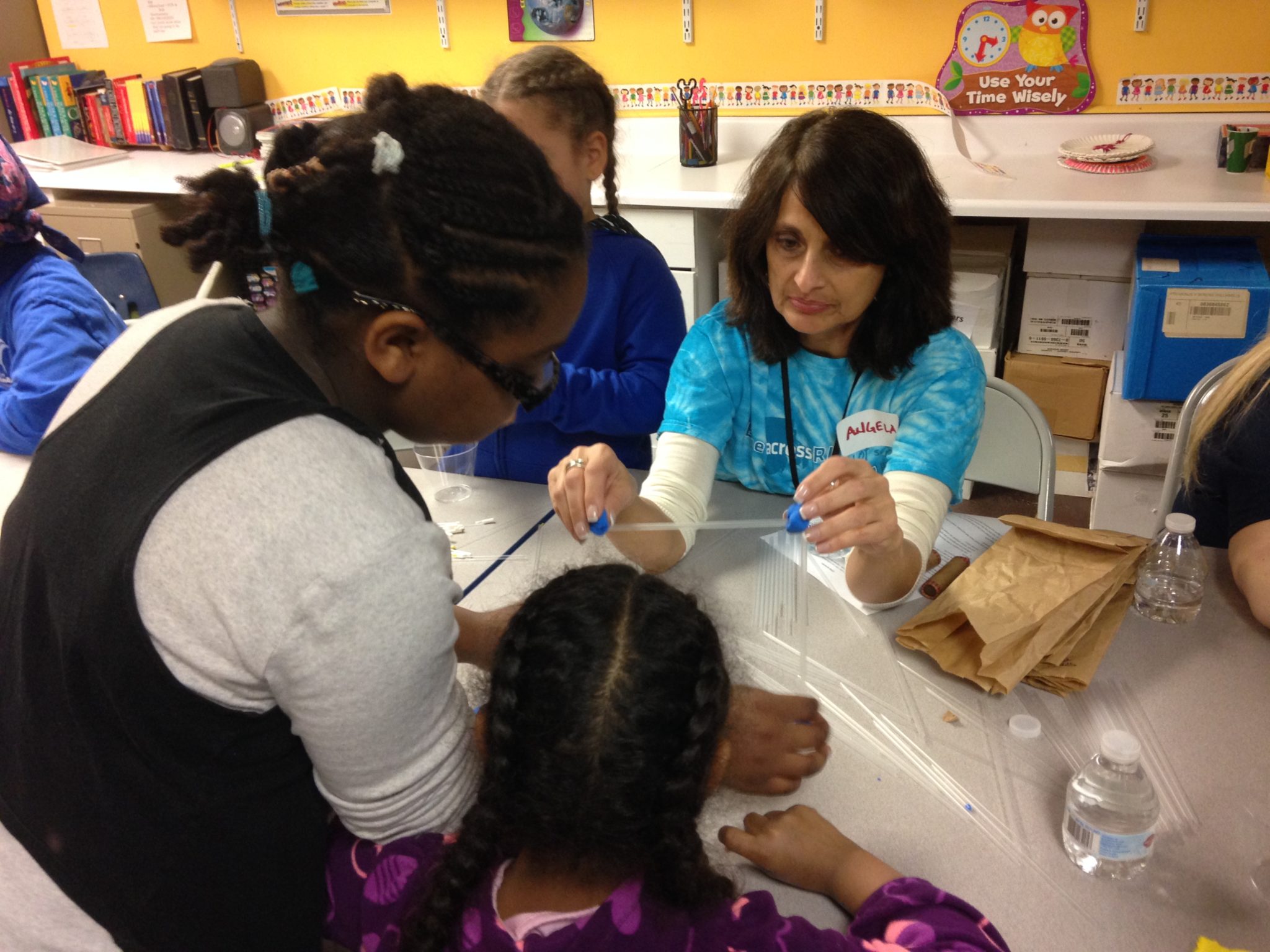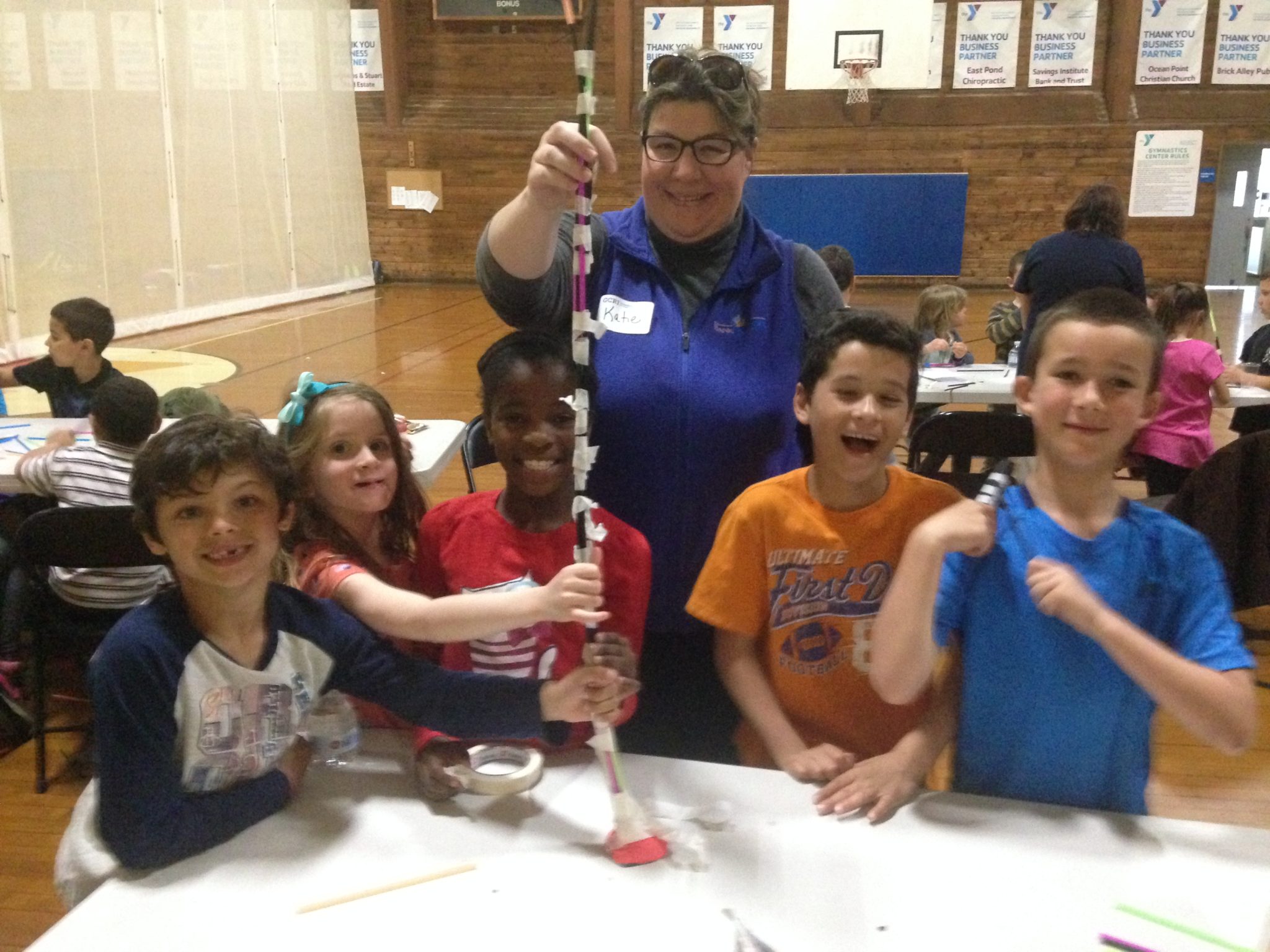Should health be determined by zip code, age, skin color or salary? How can funders help eliminate the disparity in health outcomes for vulnerable populations? Come to GCRI’s Health Equity Roundtable on January 4 to learn about creative, collaborative and cross-sector approaches to health equity. Presenters will include Dr. Nicole Alexander-Scott, Director of the Rhode Island Department of Health; Tufts Health Plan Foundation about new research on healthy aging in Rhode Island; and Carrie Zaslow about collective Health Equity Zone work in Pawtucket and Central Falls.
Creative Placemaking Roundtable September 23
GCRI Creative Placemaking Roundtable for Funders on September 23
GCRI is excited to welcome Jamie Bennett, Executive Director of ArtPlace America, for our September 23 Creative Placemaking session, which will be held at Southside Culture Center from 10am-noon. ArtPlace America is one of the nation’s leading organizations in engaging the public, private and nonprofit sectors in collaborative initiatives to build local communities’ livability, safety, identity, diversity and economic vitality by engaging the arts as a foundational strategy and value. Come learn about innovative approaches both within Rhode Island and across the country, and see firsthand some of the creative projects in our state.
Federal Reserve to Name RI Working Cities Design Grantees
Federal Reserve to Name RI Working Cities Design Grantees
The Federal Reserve Bank of Boston has invited GCRI members to attend the announcement of the Rhode Island Working Cities Challenge Design Grant Awardees on Friday, August 12, from 10am-noon at AS220 (115 Empire Street, Providence). Federal Reserve President Eric Rosen, Governor Gina Raimondo, Rhode Island business leaders, and representatives from national and local philanthropy will celebrate seven Rhode Island cities and towns that have been awarded $15,000 design grants to further their initiatives on behalf of low- to moderate-income residents in their communities.
Design Grant awards are the first stage of the Federal Reserve Bank of Boston’s Working Cities Challenge, an economic development effort designed to strengthen cross sector collaboration and leadership, in support of issues that affect low-to-moderate income residents. The cities and towns that have won design grants have proven ready to participate in rigorous design work sessions that will help strengthen their design initiatives, form collaborative teams and prepare the seven teams to compete for larger Working Cities Implementation grants in early 2017.
Following brief remarks, representatives from the city teams will be on hand to discuss their unique initiatives. Light refreshments will be served.
To RSVP, please send your name and contact information to communitydevelopment@bos.frb.org
For questions, please contact Armeather Gibbs, Director, Rhode Island Working Cities Challenge, at Armeather.gibbs@bos.frb.org.
Forum Highlights — Rethinking American Justice
GCRI is a member of the Forum of Regional Associations of Grantmakers, representing 33 different grantmaking associations and over 5,500 participating organizations, the largest network in American philanthropy. While we have great resources locally and regionally, the Forum provides the opportunity for GCRI members to learn from colleagues and content experts from across the country.
Recently, Philanthropy New York‘s 37th Annual Meeting focused on the theme of “Rethinking American Justice,” focusing on the history and present application of justice in America – discussing what we call criminal and examining the kinds of reforms that could strengthen communities across the nation. The opening panel focused on “Building Political Consensus on Criminal Justice Reform,” with Mark Holden, Senior Vice President, General Counsel and Secretary, Koch Industries; David Yassky, Dean, Pace Law School; Kenneth Zimmerman, Director, US Programs, Open Society Foundations; and Malika Saada Saar (Moderator), Public Policy and Government Relations Senior Counsel-Civil and Human Rights, Google. Then you can watch “PHIL Talks” — dynamic short presentations in rapid-fire succession by fascinating individuals who are making extraordinary change on justice reform issues, including Charles Nuñez, Community Advocate, Youth Represent; Glenn E. Martin, Founder, JustLeadershipUSA; and Andrea Ritchie, Soros Justice Fellow, Co-author: “Say Her Name,” “Roadmap for Change” and “Queer (In)Justice.” Finally, the headline panel on “Rethinking American Justice,” features Michelle Alexander, Author of “The New Jim Crow,” Civil Rights and Legal Scholar, and Senior Fellow at Ford Foundation; Hon. Jonathan Lippman, former Chief Judge, State of New York, Latham & Watkins LLP, Of Counsel and Chair of the Independent Commission on New York City Criminal Justice and Incarceration Reform; Nicholas Turner, President and Director, Vera Institute of Justice and Erik Eckholm, (Moderator), National Legal Correspondent, the New York Times.
GCRI Member Organization Events
Please join your colleagues for the following events sponsored by GCRI member organizations. If you have organizational events that you’d like to share with GCRI colleagues, please forward them to nancy.wolanski@uwri.org.
PAWTUCKET / CENTRAL FALLS HEALTH EQUITY ZONE LAUNCH
Sponsored by LISC RI
Tuesday, June 14, 2016 – 5:30 pm to 7:00 pm
Veterans Memorial Garden Amphitheater, adjacent to Pawtucket City Hall
The collaborative HEZ work plan, for both cities, strives to create neighborhoods where all residents have full and equitable access to safe streets, parks, recreational areas, affordable housing, and healthy food. Join First Gentleman Andy Moffit, Office of the Governor; Dr. Nicole Alexander-Scott, MD, MPH, Director, Rhode Island Department of Health; Mayor James Diossa, City of Central Falls; and Mayor Donald Grebien, City of Pawtucket. Questions? Please contact Deanna Bruno at LISC: (401) 519-5696 or dbruno@lisc.org. Please RSVP by June 10.
INVESTING IN CHANGE: FOUNDATION SUPPORT FOR LOBBYING AND OTHER ADVOCACY
Sponsored by the Rhode Island Foundation
June 30, 1:30pm-2:45pm
On Thursday, June 30, Isaiah Castilla of Bolder Advocacy, an initiative of the Alliance for Justice to promote active engagement in democratic processes and institutions by giving nonprofits and foundations the confidence to advocate effectively, will be in town for a training with nonprofits on federal and state advocacy rules. (Learn more about that session.) We’re pleased to invite our funder colleagues to a private session with Isaiah that afternoon. Not sure how to make the case for funding advocacy? Uncertain whether you can fund grantees that lobby? Wondering whether your public or private foundation can speak out on a particular issue? This training, for both public and private foundations, answers these questions and more! Please RSVP by June 27. REGISTER HERE
Suggestions for Funders Interested in Early Childhood Initiatives
On Monday, Governor Gina Raimondo and RI KIDS COUNT hosted the Governor’s Summit on Early Learning and Care, and one of the themes was the need for coordinated efforts in early childhood work, particularly as the state’s Race to the Top funding comes to an end in September 2016. There are many reasons to become involved in early childhood work, not the least of which is the 1:6 return on investment, but there are a lot of important considerations for funders looking to have collective impact in this area. FSG’s recent report, Improving the Odds: FSG’s Report on Early Childhood Education Funding, provides some valuable insights for funders who want to make a lasting impact.
For those looking for the summary, here are the seven key principles for funders:
-
Connect Siloed Dots Fragmentation and silos create a diverse but disconnected sector— funders have an opportunity to catalyze connections and trust among varied actors.
-
Double Down on Family Engagement Families should be at the center of shaping, implementing, and evaluating the many facets of ECE systems change work.
-
Embrace the Tensions Different settings, standards, and social norms create tension—successful systems change efforts must face, rather than circumvent, these tensions.
-
Factor in Market Forces Childcare is an industry of small business owners competing for customers—supporting this industry means thinking beyond traditional grantmaking.
-
Play the (Not So) Long Game Long-term systems change strategies in ECE must be coupled with short-term successes that foster and sustain commitment.
-
Expand Your Outcome Horizon It is possible—and critical—to track indicators of incremental systems change on the longterm path to better outcomes for children.
-
Adapt to Twists and Turns The dynamic context of ECE means that strategies must be agile and regularly subjected to rigorous reflection and course correction.
I also appreciated some of the insights about evaluation — be sure to check out the chart on page 16 of the report, looking at examples of progression from an ECE initiative in Virginia:
1. If we create and foster:
• A community-wide shared vision for ECE
• A joint action plan adopted by key ECE stakeholders
• Open data sharing among ECE providers
• Trust among ECE stakeholders
• A participatory process for residents
• Dedicated resources for ECE systems work2. There will be a stronger ECE system for:
Families
• Better knowledge of available ECE resources
• Better access and ability to navigate ECE resources
ECE Providers
• Stronger competencies to serve diverse needs
• More connections and referrals among providers
The Community
• More socioeconomically mixed ECE programs and classrooms
• Increased public funding and support for ECE3. Resulting in these better outcomes for children:
Health
• More and better prenatal care
• Healthier birth-weights
• More access to primary healthcare providers
• More age-appropriate fine motor skills acquisition
• Healthier BMI ranges
Academic
• More and better pre-K experiences
• Higher school readiness in math and reading
• Higher 3rd grade proficiency in math and reading
Socio-emotional
• More diagnosed developmental delays
• Higher school readiness in socio-emotional areas
• Better self-regulation
• Better knowledge of self
This is a helpful framework for thinking about collective impact, as well as measurement on a systemic as well as an individual level.
Importance of Funding Infrastructure for Nonprofits and Philanthropy
GCRI’s recent focus on Nonprofit Resilience and Sustainability has been echoed nationwide. Deb Linnell, who has done extensive work on organizational development and sustainability with van Beuren Charitable Foundation grantees, especially from a financial perspective, sent along this resource from the Nonprofit Quarterly: Keeping It In Reserve: Grantmaking for a Rainy Day.
Spearheaded by the leaders of the Center for Effective Philanthropy and Guidestar, 22 national organizations signed on to a letter last week encouraging foundations to consider giving 1% of their annual giving to organizations that support the sector’s capacity and effectiveness. The Forum of Regional Associations of Grantmakers (GCRI’s national affiliate) was one of the authoring organizations, recognizing the importance of an infrastructure to enable civil society to effectively address the challenges facing our communities today.
An economy needs roads, bridges, and train stations to thrive. A community needs schools, parks, and houses of worship to ensure the flowering of human potential.
And civil society needs infrastructure to ensure that nonprofits and foundations can act with integrity and impact. Nonprofit infrastructure organizations run the training programs that support the growth of our staff and volunteers. They do the research to help us understand what works, and what doesn’t. They build the technology platforms that make communication and learning possible. They hold the conferences that gather nonprofit leaders together and provide them the resources and connections to improve their work. They advocate for new levels of excellence to push us all to do better — and for policies that create the legal environment in which we work.
In short, they make foundations and nonprofits more effective in their quest to make the world better.
For more information, you can read Jacob Harold’s blog post at Guidestar or Dave Biemesderfer’s Forum blog post, which also gives information about the Forum’s efforts to engage the philanthropic support organizations in a collaborative effort to better support the needed work in our communities.
GCRI Members Build STEM Interest in Elementary Students
While many children took April Vacation off from learning, GCRI members Blue Cross & Blue Shield of Rhode Island and Bank Newport made sure that more than 50 Rhode Island elementary students were engaged in “hands on, minds on” learning as part of GCRI’s first annual April Vacation Volunteer Initiative.
Teams of ten volunteers from Blue Cross and Bank Newport each spent a morning challenging children at South Providence Neighborhood Ministries and the Bristol Warren Child Opportunity Zone program (COZ) to use their problem solving and critical thinking skills to solve engineering challenges. Both sessions were full of energy, excitement and experimentation, as the corporate volunteers and their young teams built gumdrop bridges and pompom launchers, all in the name of science.
If you are interested in participating in the 2017 April Vacation Volunteer Initiative, please contact GCRI.
Collective Impact from a National Funding Perspective
After a thought provoking initial discussion about Collective Impact on February 4, you may be interested in delving deeper with practitioners from the national funding community. The Collective Impact Forum, a field-building partnership between FSG and the Aspen Institute, will be sponsoring the 2016 Collective Impact Funder Convening on June 6-8 in Seattle. The third annual three-day funder meeting will attract about 300 leaders from private foundations, community foundations, United Ways, government agencies, and corporate foundations from around the country. The funder convening, which sold out each of the past two years, will provide opportunities for learning and peer exchange with other funders who are catalyzing change through collective impact. Discussion themes will include aligning multiple collective impact initiatives in one place, capacity building, community engagement, equity, leadership, and learning and evaluation. There will also be opportunities to take advantage of joint programming with two other audiences who will attend part of the convening: leaders of experienced collective impact initiatives and other collective impact partners.
GCRI members can register to attend the funder convening using promo code RAG50 to get $50 off their individual registration.
Visit this site for more details on the convening, and contact the Collective Impact Forum’s Robert Albright if you have any questions.



